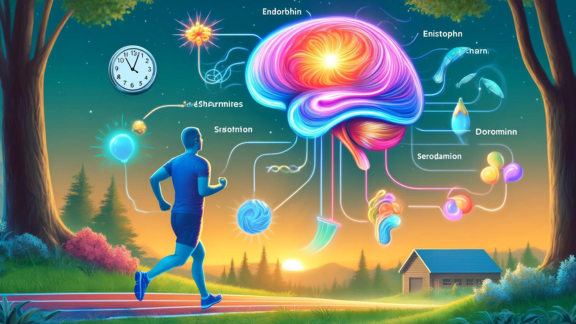
Chapter 4
Physical fitness & exercise
“Movement is a medicine for creating change in a person’s physical, emotional and mental states.”
– Caroline Myss



Team Up for Success
Working out with a buddy keeps you responsible and less likely to skip sessions.
Turn your workout into a fun social event.
Catch up, laugh, and motivate each other, making exercise more enjoyable and effective.






Mood-Specific Exercises
Different activities can help manage emotions.
- Feeling stressed? Run.
- Feeling moody? Nap.
- Angry? Lift weights.
- Sad? Seek sunlight.
- Anxious? Go for a walk.






Boost Brain Function
Regular exercise improves blood flow and brain function.
It combats stress, depression, and anxiety and elevates mood by releasing key hormones: endorphin (euphoria), serotonin (mood regulation), and dopamine (reward feeling).
It may take up to 30 minutes of activity for your body to release these mood-enhancing hormones.






Optimize Performance Through Nutrition
Consuming carbohydrates and protein before and after workouts boosts performance and speeds recovery.
Time meals 1-3 hours before and within 30 minutes to two hours after exercising.






Maximize Benefits with Minimal Time
Just 20 to 30 minutes of any enjoyable physical activity can significantly improve mental health.
Start with manageable goals.
Gradually increase intensity to prevent stress and maintain a positive outlook.






Feel free to share with your colleagues
Give feedback, ask questions or request new resources


